#Clarissa Dalloway
Photo

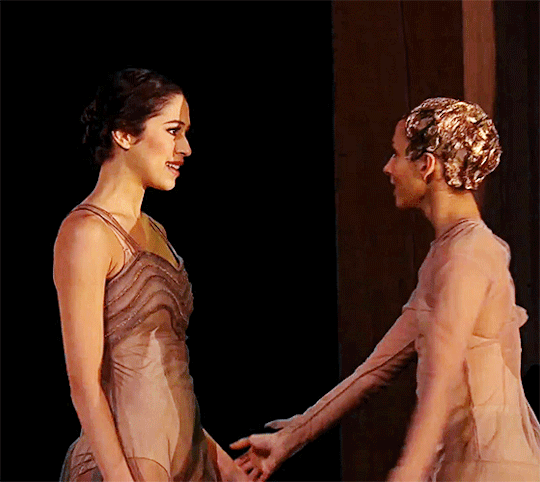
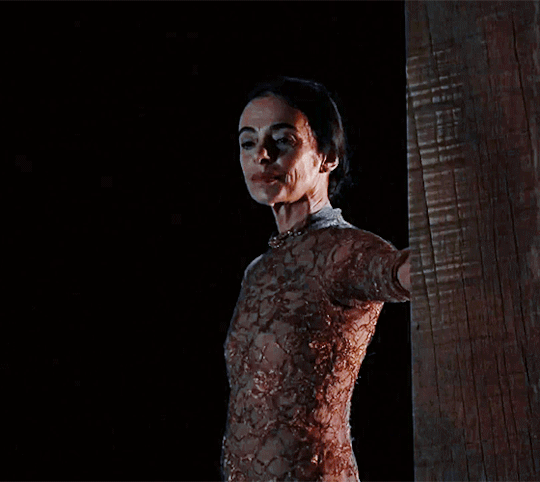
“Then came the most exquisite moment of her whole life passing a stone urn with flowers in it. Sally stopped; picked a flower; kissed her on the lips. The whole world might have turned upside down! The others disappeared; there she was alone with Sally. And she felt that she had been given a present, wrapped up, and told just to keep it, not to look at it — a diamond, something infinitely precious, wrapped up, which, as they walked (up and down, up and down), she uncovered, or the radiance burnt through, the revelation, the religious feeling!”
- Virginia Woolf, Mrs. Dalloway
#yall have no idea how hard to color this scene is#anyways...woolf works opening night baby#royal ballet#ballet#balletedit#woolf works#i now i then#mrs dalloway#clarissa dalloway#sally seton#francesca hayward#alessandra ferri#beatriz stix brunell
182 notes
·
View notes
Text
Mrs. Dalloway
quando a Clarissa Dalloway diz que então ela sente o quê os homens sentem...

3 notes
·
View notes
Text
Personally I’m more of a Margot Tenenbaum, Jo March, Emma Woodhouse, Clarissa Dalloway type of girl, so yikes
#royal tenenbaums#little women#margot tenenbaum#jo march#emma jane austen#emma woodhouse#Clarissa Dalloway#virginia woolf
20 notes
·
View notes
Text
She hated her: she loved her. It was enemies one wanted, not friends [...]
- V. Woolf, Mrs Dalloway
2 notes
·
View notes
Text
Does the narrator of Mrs. Dalloway take sides?
The narrator of Mrs. Dalloway is a third-person omniscient narrator who can access the thoughts and memories of different characters, such as Clarissa, Septimus, Peter, and others. However, the narrator does not always remain neutral or objective.
Sometimes, the narrator expresses opinions or judgments that reflect the perspective of a particular character, such as Clarissa’s admiration for Sir William Bradshaw or her resentment of Miss Kilman. Other times, the narrator seems to have a distinct voice and attitude that is not aligned with any of the characters, such as when the narrator criticizes Sir William Bradshaw’s arrogance or Miss Kilman’s self-righteousness.
The narrator of "Mrs. Dalloway" does not explicitly take sides between Clarissa and Septimus, but rather shows the different aspects of the human condition in the post-war society. The narrator's ability to shift seamlessly between Clarissa's stream of consciousness and Septimus's fragmented thoughts without judgment allows readers to immerse themselves in the inner worlds of both characters. It's this compassionate portrayal that brings out the shared struggles and isolation they experience, despite their differing approaches to dealing with their trauma.
While the narrator presents Clarissa's life as one of privilege and societal acceptance, it also reveals the underlying emptiness and dissatisfaction she feels. Her fixation on social appearances and her suppression of her true desires are portrayed with empathy, rather than judgment.
Similarly, the narrator's portrayal of Septimus's mental breakdown is one of compassion and understanding. His hallucinations and paranoia are not dismissed as mere delusions, but rather presented as the consequences of war trauma and societal neglect. The narrator's sensitivity to Septimus's inner world allows the reader to connect with his character, despite the challenges of comprehending his mental state.
In conclusion, Woolf's narrative technique, using stream-of-consciousness and alternating perspectives, serves not to take sides but to offer a multifaceted exploration of human experiences. This approach enriches the novel by inviting readers to empathize with both Clarissa and Septimus, fostering a deeper understanding of their inner conflicts and the broader societal issues at play.
#tumbler of misc whisperings#areadersuncertaintyprinciple#mrs dalloway#virginia woolf#woolf works#septimus warren smith#clarissa dalloway#novel analysis
0 notes
Note
also, ghibli boy, is 18shadesofmay a reference or can i figure it out with weird theories
hehe hi mrs dalloway
it was honestly bohot impulse username😭
i was born in may + i was 18 when i made this account. that’s literally it.
fuck, it’s SUSPICIOUSLY similar to “50 shades of grey”. i might need to change😭
12 notes
·
View notes
Text

Edna St. Vincent Millay, "Interim"
via southerncrossreview.org
#this reminds me so much of the clarissa dalloway x sally seton kiss scene in mrs dalloway#you were the fairest thing god ever made i think#edna st. vincent millay#quotes#literature#literature quotes#literary quotes#love quotes#lit quotes#american lit quotes#literary quotations#quotations#poem#poetry#american lit#american literature#american poetry#american author#20th century poetry#20th century literature#love poem#love poetry
8 notes
·
View notes
Text
hi i'm hsc posting again
the flowers in mrs dalloway are a symbol of desire
"mrs dalloway said she would buy the flowers herself" is the first line of the book, and one of the only ones i know. here is what prompts her to have the existential crisis of being "mrs richard dalloway". her decision to buy the flowers herself is representative of how she is not being satisfied through her relationship with her husband and must instead find pleasure through the little independence she has (something something sapphic). additionally, the way sally picks a flower before they kiss, back when they were 18, illustrates how sally was the only romantic relationship she had that pleased her. the note in her memory (because the whole novel is the characters' perceptions of the past and present) that she did so is because she is unfulfilled in her marriage and is idealising that past. you would think this means that she can't find happiness with richard because she's a lesbian but through the textual conversation with the hours, in which clarissa vaughn is in a dried up relationship with her partner, sally, it just shows that clarissa sucks at relationships and idealises the past.
#modern#thank you for coming to my ted talk#virginia woolf#mrs dalloway#the hours#clarissa dalloway sucks at relationships#i hesitate to queer-tag this because i don't like the representation that much#like... virginia woolf maybe gets a pass but the fact that the component i'm studying was written 20 years ago??#bullshit#do better nesa#hsc#hsc student#i dont know if anyone doing the hsc has a tumblr#english advanced#mod a#if there are any hsc students on here: that first poem was pretty neat right?#love the spices
8 notes
·
View notes
Text
still not over the name thing tbh i get jump scared every time they say ‘carissa’
#not a lot of people have that name!!! i think the closest i’ve come to a fictional namesake is clarissa dalloway modernist bisexual icon!#and okay annnnd there was a one episode greys anatomy patient in like season 18 who gets dumped by her fiancé for being a self centered bitc#i just watched that episode with my college roommate <3#in any case carissa’s out there are NOT representing 😬😬#do revenge lb
2 notes
·
View notes
Text

Mrs. Dalloway
Virginia Woolf
In this vivid portrait of a single day in a woman’s life, Mrs. Clarissa Dalloway is preoccupied with the last-minute details of preparation for a party while in her mind she is something much more than a perfect society hostess. As she readies her house for friends and neighbors, she is flooded with remembrances of the past—the passionate loves of her carefree youth, her practical choice of husband, and the approach and retreat of war. And, met with the realities of the present, Clarissa reexamines the choices that brought her there, hesitantly looking ahead to the unfamiliar work of growing old.
Published 1925
Read it with Amazon
Read it with Barnes & Noble
Read it with Apple Books
#book#adult literature#mrs dalloway#virginia woolf#drama#clarissa#1925#white heroine#bisexual heroine#51 to 60#ableism#suicide#death
1 note
·
View note
Photo
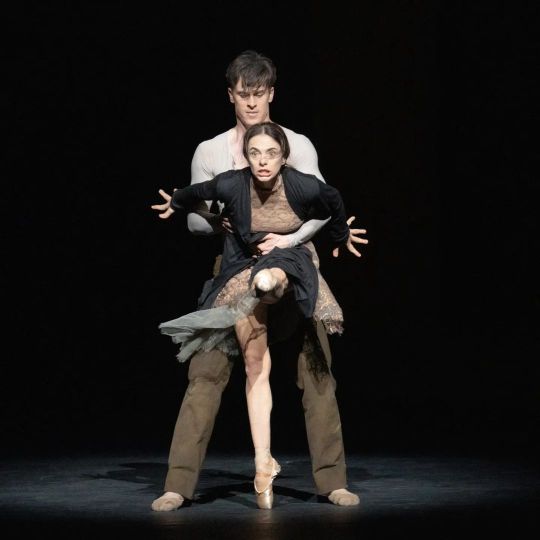
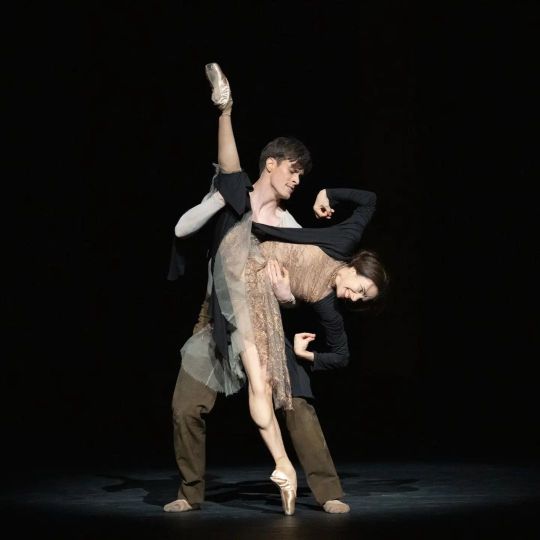
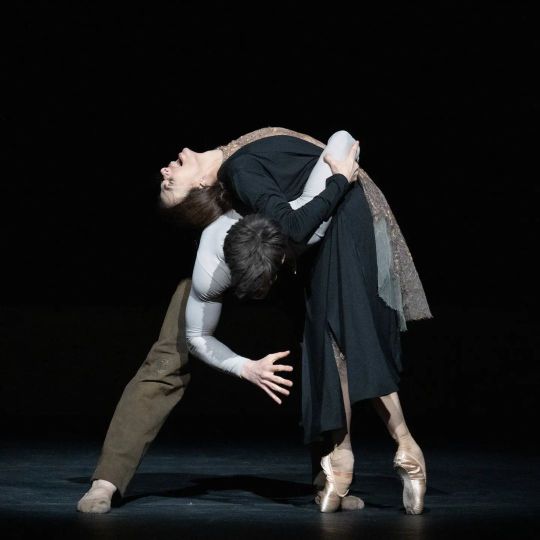
Alessandra Ferri and Calvin Richardson in Woolf Works (Royal Ballet 2023)
- photos by Andrej Uspenski
#alessandra ferri#calvin richardson#woolf works#i now i then#royal ballet#ballet#balletedit#septimus smith#clarissa dalloway
38 notes
·
View notes
Text
Mrs Dalloway Summary, Mrs. Dalloway is a novel by Virginia Woolf published on 14 May 1925. It details a day in the life of Clarissa Dalloway, a fictional upper-class woman in post-First World War England. It is one of Woolf's best-known novels.
#mrs dalloway short summary#mrs dalloway summary#mrs dalloway sparknotes#mrs dalloway analysis#virginia woolf mrs dalloway summary#mrs dalloway plot#mrs dalloway critical analysis#mrs dalloway character analysis#mrs dalloway summary and analysis#mrs dalloway summary pdf#clarissa dalloway character analysis#mrs dalloway synopsis#clarissa and septimus analysis#virginia woolf mrs dalloway analysis#mrs dalloway analysis pdf#mrs dalloway plot summary#mrs dalloway summary and analysis pdf#mrs dalloway chapter summary#summary of the novel mrs dalloway#mrs dalloway cliff notes#mrs dalloway chapter wise summary#critical analysis of mrs dalloway#mrs dalloway critical analysis pdf#mrs dalloway in bond street summary#mrs dalloway said she would buy the flowers analysis#mrs dalloway detailed summary#character analysis of mrs dalloway#virginia woolf mrs dalloway sparknotes#summary of mrs dalloway novel#mrs dalloway book summary
0 notes
Text
How to write a gripping beginning
by Writerthreads on Instagram
Personally, I find beginnings to be one of the hardest parts of the whole book because it's so important. The beginning is what makes or breaks your book. It's what keeps readers interested after they pick it up at a store, or when they first download it on their Kindle. Below are some tips, as well as some analyses, on how to perfect a story's beginning.
Introduce your main character and the setting: Mrs. Dalloway
By "introduce", I don't mean a giant 10-page info dump on royal family tree or the ten kingdoms the world is made up of. Rather, I'm thinking of a character in a place, or doing something. The best, and one of the most famous examples would be how Virginia Woolf started Mrs. Dalloway:
Mrs. Dalloway said she would buy the flowers herself.
Already, you have the titular character, Mrs Dalloway, introduced. She's doing something, too. She's saying that she's going to buy flowers herself, setting up a scene later where she's probably going to, or back out of, buying flowers. The pronoun "herself" suggests to the reader in Woolf's era that she's of a middle-class background and that somebody (eg. a servant) would normally be running errands for Mrs. Dalloway, but the character wanted to do this simple task herself.
I could go on forever about how each word in this simple sentence has implicit meanings and my ex-A Level Eng Lit teacher will probably be very proud of me, but that's not the point. The main idea is that in just a single sentence, a lot is being revealed to the reader without the writer having to info dump anything.
Allow me to continue to the second paragraph of the book:
For Lucy had her work cut out for her. The doors would be taken off their hinges; Rumpelmayer's men were coming. And then, thought Clarissa Dalloway, what a morning-fresh as if issued to children on a beach.
More characters are introduced now: we have Lucy, Rumpelmayer and his men. Mrs. Dalloway's full name is revealed, and so is her personality through her thought. It's childlike, whimsical and light, and that's why her name "Clarissa Dalloway" is used here instead of the stiff "Mrs. Dalloway".
In just two paragraphs, we are introduced to the titular character and some minor characters are mentioned. We also know bits and pieces of what's going to happen. Woolf artistically starts off the book with simple prose. Everything is well thought out, yes, Virginia Woolf is a literary genius, yes, but this is something that we can all do: write a simple introduction without weighting readers down with lots of detail we don't need, and get straight into the story.
Start in media res
Fun fact: "in media res" is also the name of our Discord Server!
When you start in the middle of an action, readers are transported straight to the story, hooking them in. For example, if you were writing a rom com, you could start with the main character bumping into a long-lost friend:
Emma saw a familiar cowboy hat bobbing in and out of the crowd in front of her. Emma found herself pushing through sweaty limbs into the crowd, trying to catch a glimpse of the person who wore the hat, trying to see whether it was really her friend who had ghosted her five years ago.
Obviously this isn't the best beginning in the world, but you get the point.
Try something interesting
A strong story opening makes you want to know more. Donna Tartt does this perfectly in A Secret History:
The snow in the mountains was melting and Bunny had been dead for several weeks before we came to understand the gravity of our situation.
What is up? Who is Bunny? What's so serious about their predicament? Tell us more!!! Bunny's death makes us want to know what has happened, while mentioning the characters' situation wants us to know what's going to happen. Tartt forces us to continue on to find out the full story.
Lead with a strong statement
A Tale of Two Cities by Charles Dickens:
It was the best of times, it was the worst of times, it was the age of wisdom, it was the age of foolishness, it was the epoch of belief, it was the epoch of incredulity, it was the season of Light, it was the season of Darkness, it was the spring of hope, it was the winter of despair, we had everything before us, we had nothing before us, we were all going direct to Heaven, we were all going direct the other way – in short, the period was so far like the present period, that some of its noisiest authorities insisted on its being received, for good or for evil, in the superlative degree of comparison only.
Anna Karenina by Leo Tolstoy:
Happy families are all alike; every unhappy family is unhappy in its own way.
Tolstoy’s first line introduces the domestic strife that drives the story’s tragic events, using a bold, sweeping statement, while Dicken's catchy first sentence introduces us to the book's main themes.
There are way more examples of good beginnings that you can only learn from by reading. If you're a beginner, literally comb through a library shelf of the genre you're writing in and see how published authors have written their beginnings. Alternatively, you could go check out our post on the best story beginnings for more ideas!
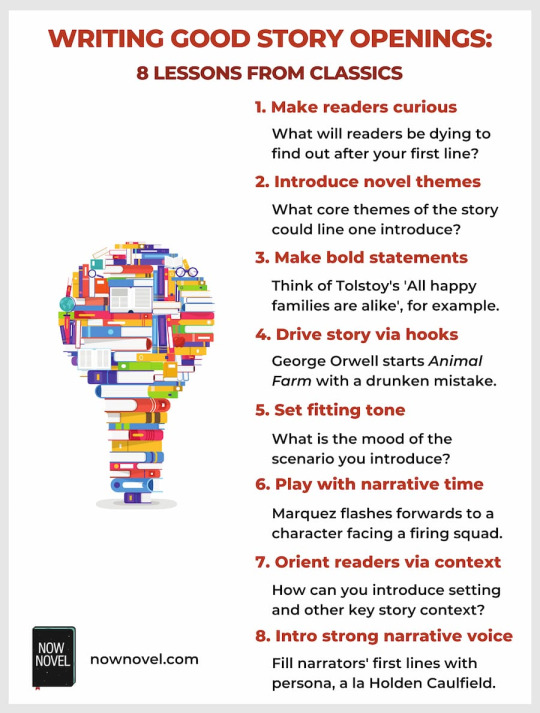
#writers on tumblr#writing#story writing#teen writer#writers#writers block#writing inspiration#writing tips#my writing#writeblr#writing prompt#writers and poets#writerscorner#writer problems#creative writing#writer things#writerslife#writing advice#writing community#writing process#story ideas#short stories#fiction#stories
1K notes
·
View notes
Text
La signora Dalloway, tra passato e presente
Il romanzo, così come il film (datato 1997) si appigliano al flusso del fiume della prosa dell’autrice britannica e vi piantano dei paletti, cercando di deviarne il corso. Vediamo come.
Kierkegaard scrisse a proposito del ricordo che esso rende l’individuo infelice, perché presuppone una ripetizione all’indietro, priva del benché minimo beneficio concreto. Non so se Virginia Woolf abbia mai letto gli scritti del filosofo, eppure in La signora Dalloway questa convinzione sembra trovare terreno fertile. Il romanzo, così come il film (datato 1997) si appigliano al flusso del fiume…
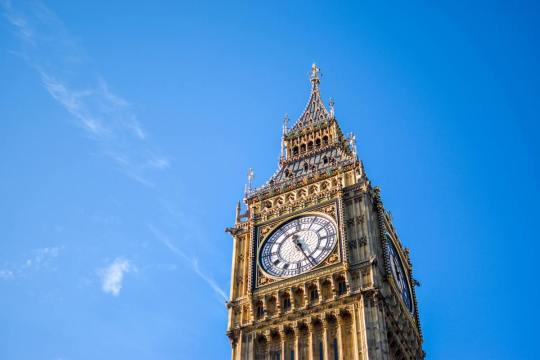
View On WordPress
0 notes
Text
Although Mrs. Dalloway is centred on 'the protagonist’s consciousness, it has an outside, socio historical dimension as well.
"Mrs. Dalloway" indeed predominantly revolves around Clarissa Dalloway's consciousness, yet it also possesses a rich socio-historical dimension that transcends her individual perspective. Virginia Woolf masterfully intertwines the personal and the societal, creating a narrative that reflects the broader context of post-World War I London.
The setting of the novel, London in 1923, provides a backdrop for exploring the social dynamics of the time. Clarissa's preparations for her party, the interactions at the party itself, and the observations of various characters throughout the day reveal the rigid social hierarchies, gender expectations, and class divisions that shaped British society in the interwar period.
The novel also captures the changing attitudes towards women and their roles in society. Clarissa's desire for independence and her questioning of traditional gender roles reflect the growing feminist movement of the time. The juxtaposition of Clarissa's social engagements with the more radical feminist ideas expressed by Sally Seton suggests the complexities and contradictions within the women's movement.
The novel's depiction of the aftermath of World War I is particularly poignant. Septimus Warren Smith, a shell-shocked war veteran, serves as a stark reminder of the psychological and emotional trauma inflicted by the war. His struggles with mental illness and his eventual suicide highlight the disregard for veterans' mental health, reflecting broader societal neglect and the consequences of war trauma.
In conclusion, while Mrs. Dalloway is centered on Clarissa Dalloway's consciousness, it does not exist in a vacuum. The novel is firmly rooted in its socio-historical context, providing insights into the social dynamics, cultural trends, and psychological impact of post-World War I England which further elevates its significance beyond the confines of a single protagonist's consciousness.
#tumbler of misc whisperings#areadersuncertaintyprinciple#mrs dalloway#virginia woolf#woolf works#septimus warren smith#world war 1#clarissa dalloway#novel analysis
1 note
·
View note
Text
Raven Hair and Emerald Eyes
(book! Miss Peregrine x Fem! Reader)
I hope you'll enjoy it!! :D
You have been in the loop for many years now, yet you could still vividly remember the day you saw it for the first time. Stepping your foot on the island was no accident. You were a long time in search of a home, and when finally one day an ymbryne offered you a place as a sort of assistant, you couldn’t contain your excitement and hit the road as soon as you packed your only bag. However, there was one issue. You had a terrible sense of orientation, and the brief set of instructions about its location scared you. You trailed the island far and wide, getting lost on multiple occasions, yet you still couldn’t find the entrance.
One day, however, when you were once again unsuccessfully returning to the shore to catch the last ferry off the island, a tall blond girl about 17 stopped you with a smile.
“Hello, Miss Y/L/N. Miss Peregrine has been expecting you. Come with me.”
From that day on you became a new inhabitant of the 1940 Cairnholm loop. The children warmed up to you instantly, and even Enoch—who you later learnt didn’t usually extend this courtesy to just anyone—was delighted by your presence.
The headmistress and ymbryne of the loop, a woman of disting Victorian appearance and raven hair, greeted you with open arms, if not as familiarly, keeping the kind of professional distance you’d have with a new co-worker. Even after months of living there, it was always ‘Miss Y/L/N here’ and ‘Miss Y/L/N there’.
It was your 14th month in the loop that she finally proposed a first-name basis kind of relationship and this offer didn’t extend to situations in front of the children up until a few months ago.
The peregrine was a peculiar woman in many ways—she intrigued you—and you realised all too late that you were slowly falling for her. It was the way she smiled when she thought that no one was watching, how her eyes lit up when she taught the children, the way she would gently pull on the sleeves of her dresses when she was nervous, or the passion with which she fiercely protected her children whenever a policeman knocked on their door with a complaint.
With each day, you fell deeper and deeper into the tangled depths of affection, and that scared you.
One evening, you got into a passionate discussion about the passage of time and age, and she casually mentioned she was born in the late 1870s. At that time, you believed this knowledge was of no special meaning to you since you were used to the birthdates of people around you going as far back as the 1500s. But as your admiration grew, you realised that this information might just signify a problem.
You didn’t know a lot about history, but the topic of acceptance of homosexual people and relationships was something you were quite familiar with. The late 19th century certainly wasn’t a time when you could openly confess your love for another woman, and you feared that growing up in such a time, Alma might share the same convictions. If you weren’t hesitant about sharing your feelings before, you were surely not going to find it easy now, so you decided to test the waters first.
Finally, the perfect day arrived. The children were playing in the garden; the sun was just in the right spot in the sky, and you summoned the courage to bring the topic up to Alma.
“I read this book recently,” you began, “And it’s quite good. I don't know if you know it. It’s Mrs Dalloway by Virginia Woolf.” Alma replied with a raised eyebrow.
“You do realise that you're asking me if I’ve read one of the greatest works of modernist literature,” she said smugly, and you couldn’t help but blush a little at your clumsy way of approaching the subject.
“Of course, sorry. Well, then I suppose you do remember Clarissa mentioning falling in love with her best friend.” Alma visibly froze at that.
“Yes.”
You felt a lump growing in your throat. “How do you feel about that sort of thing, if I may ask?”
She scanned your face for a moment, her emerald eyes boring deep into yours as if searching for something. The living room felt suddenly too small for the two of you.
“Is there any specific reason you're asking?”
“N-No.” You mentally cursed at the slight stutter in your answer.
Alma finally tore her eyes away, leaving you breathless; however, still awaiting her answer.
“I'm no monster. Why should one’s life be less valid than someone else’s just because they love outside the constraints of our rigid society’s expectations? We are all people, aren’t we? And humanity’s greatest strength is the love we have for one another. Love makes life worth living. If each of us loved just a little more, the world would be a better place.”
As you felt your eyes water, you discovered you were never going to be able to reach the bottom of the ocean of love you felt for this woman, and you weren’t sure you wanted to.
She must have mistaken your silence for unease, so she asked. “Do you hold a different view?”
“No! Birds no. You- You just phrased it beautifully.” You smiled at her, and when you saw her face bloom like a flower, you couldn't help but blush once again.
But as you also learnt the first week in this house, peace never lasts, so before you could reach out and pull a mischievous strand of hair out of her face, little Claire ran into the room.
This conversation warmed your heart for weeks, lighting a spark of hope inside you. Maybe there was some hope for you. But still, you didn’t feel ready to confess your love for her, so you were trying to come up with ways to show her how much she meant to you without saying as much. You would remember any little thing that she told you because what she found interesting you held dear to your heart. You would recommend her books that reminded you of her, collect her favourite flowers to display in vases around the house or shower her with compliments whenever you got the chance.
You were flirting, and she was oblivious to it. Maybe she didn’t realise it or she was just letting you down slowly; you couldn’t tell. Her cheeks would redden each time and she’d go on to say something like, such affections needn’t be shown to her as she looks the same as she does every day, and being a good ymbryne doesn’t have to earn her compliments. To that, you’d respond that she doesn’t get appreciated enough and that would win a bright smile from her.
“And ‘good’ is an understatement.”
In between your duties as an assistant, you would also often spend little bits of free time on the mainland in the city library, scavenging the shelves for books you could read together. Going to the counter with another stack of books, you’d meet the gaze of the new librarian, a man in his early thirties with short blond hair and kind brown eyes. You never talked much besides the pleasantries.
Once you’d get home with the loot, Alma would meet you at the door to help you bring the book into the study.
This has been going on for about six months. You and Alma grew closer each day, but at some point, you’ve come to the sad realisation that she saw you as only a friend. For a time, you lied to yourself, saying it was more than enough for you. However, as the days went by, the beautiful feeling of falling deeper in love with her became a cruel, dragging force that slowly suffocated you.
You needed to escape and that was the time the guy behind the counter first spoke to you beyond politeness. His name was Jonathan, and the two of you quickly bonded over your shared love for astronomy. You would sometimes wait for him at the end of his shift, and you’d have lunch together in the nearby park. He would tell you about his life and family—of how unaccepting his father was when he told him he was bisexual. In turn, you told him how your parents freaked out when they found out you liked women, leaving out the fact that it was in the 1960s. And the more you got to know him, the more you were using him as a way to avoid Alma.
As you were one day in the park again, he turned to you with this strange look in his eyes. He told you he liked you and that even though he knew about your feelings for someone else, he would very much like to go on a date with you even if your heart wasn’t entirely in it—as friends, he said. Then he continued to make a speech about how you shouldn’t stay unhappy forever just because one person doesn’t see how amazing you are. You got teary-eyed and knowing you had no chance with Alma you finally decided to take a step to move on.
“Alma?” You were just in the living room, enjoying your siesta. Alma was seated, or rather, strangely bird-like nestled, in an armchair by the window, reading a book. She tilted her head, her eyes staying on the text to the very last moment before she met your gaze. She was sometimes so much like a bird, and you found every bit endearing.
“Yes?”
“I was wondering if I could spend the evening on the mainland,” you said nervously, feeling strangely guilty, like a child lying to their parents about who broke the living room window. She smiled in confusion.
“You know you don’t have to ask. You’re no prisoner, Y/N.” She chuckled lightly. “You know I trust you to make your own decision and keep yourself safe in the process. Just make sure you catch the last ferry back to the island so the children and I don’t have to worry all night,” and with that, her eyes returned to her book.
“Aren’t you curious what I’ll be doing?” Was your absence really that indifferent to her? Alma closed her book with a clap.
“Polite persons aren’t nosy, but if you’re so excited to tell me, then be my guest,” she smiled.
You took a deep breath. “I’ve met someone.”
If her face had betrayed anything you hadn’t noticed—not a single identifiable emotion—yet, as if a dark veil had been drawn over it.
“Oh,” was all she said before returning to her book. You had secretly hoped she’d say more than that.
“It’s a date,” you added in a desperate attempt to get a reaction from her.
“I figured,” she stated simply. Your heart ached at the lack of care, and you made your way to the door.
“Y/N?” You stopped in your tracks. “Enjoy your rendezvous.”
The door slammed behind you.
You met Jonathan in the small city square, and from there you went to ‘the best restaurant in town’ as he called it regardless of the bizarre reality that there was only one.
The date passed in a blur. You sat at a table in the corner of the establishment and ordered wine. Jonathan talked and talked, and you felt terrible that you didn’t pay any attention as, in the gloom of the room his light hair turned dark, and after a few glasses, his eyes turned green, and all you could see was her in her dark Victorian dress, smiling across the table.
When the clock struck nine you finally separated, for a quarter to ten was when the last ferry to the island departed. He insisted on escorting you to the harbor but you rejected his offer as you felt you needed to be alone.
The shipman was a little annoyed that he had to sail to the island with just one passenger, but when you gave him triple the amount needed for one ticket, he stopped fussing.
Your hair moved in the wind as you watched the dark sea, occasionally noticing the dark shadow of one of the many wrecks on the bottom, quietly awaiting saviour. You slightly stretched over the railing, and gazing upon your reflection in the dark waters, you realised you too felt like a wreck. Cold, and alone, and lifeless. Shivers ran down your spine, and you pulled your coat closer around you.
On the island, you stumbled back to the old tomb, grateful you walked the dangerous path so many times that now you knew it well enough to navigate it in the dark. Carefully laying one foot in front of the other, you made your way into the loop entrance.
You found Alma in the living room by the table, leaning over a glass of orange liquid. Her raven hair was cascading like a waterfall over her shoulders, its ends getting lost in the sea of green velvet of her tea gown. She twirled the liquid in her glass before she tilted her head back and emptied it into her throat. Appearing to be greatly troubled, she vigorously rubbed her temples.
Without a second thought, you moved forward in a desperate attempt to comfort her and accidentally bumped your toe into a coffee table. Pain shot through your body, and you swore under your breath.
“You’re back; how wonderful. How was it with that lover of yours?” said Alma with a fake smile plastered on her face.
You slowly walked over to the table, and sank down in a chair across from Alma.
“I presume it didn’t go well?”
“I suppose you could say that, yes.” You met her eyes, and what you saw in them broke you. You couldn’t have seen it from the door, but up close you were certain she had been crying.
“What happened to you?”
“Oh, this. Nothing. It doesn’t matter.” Rubbing her eyes she muttered, ”Would you like some?” and changed the subject by gesturing to her glass.
You decided that you were too overwhelmed with your own turmoil to help hers so you decided to let it slide.
“Might as well.”
She reached for the bottle and filled her glass. Then she slowly slid it towards you. Without a word spoken, you lifted the glass to your lips. The alcohol was already room temperature, but you didn’t mind and let the comfortable burn consume you.
“You never drink whisky.”
“I do now. But that’s not important,” she said, taking the bottle in her hand to look at the label. “I think I hate it,” she added so nonchalantly that you chuckled. Your eyes met.
“I need to tell you something,” both of you blurted out suddenly.
“Please, you go first.”
“I don’t think that’s-”
“Please.”
“Alright,” she replied hesitantly. Straightening her posture and clearing her throat, she reached over the table and caught your hands in hers. Even though it was fairly dark, you still clearly saw that her cheeks were crimson. And as she looked at you and you looked at her, you were sure she wasn’t alone.
“You- You might think me a delusional old woman, but…just yesterday, I would have sworn you fancied me.”
You froze, chills running down your back instantly.
“I know it’s silly. I suppose I saw what I-” she paused, looking at your joined hands.
“Go on. Please,” you squeezed them. Her nervous eyes darted back to yours.
“People see what they want to see,” she began hesitantly. “And I so desperately wanted you to feel the same.”
“W-what do you mean?” She closed her eyes, her eyebrows furrowed.
“Don’t make me say it just so you can reject me.” If you weren’t red before, now you most definitely were. Without giving you a single glance she let go of you and hid her face in her hands.
“You mean you-”
“Yes,” she muttered sharply, flustration lacing her words. The distance between you suddenly felt unbearable.
“You fancy me?” you asked once more in joyous disbelief. Alma slowly sank in her seat lower and lower, her face still hidden in her palms.
“Stop asking,” she whispered.
Your chair screeched as you sharply pushed it from the table, jumping to your feet, and now you stood over Alma.
Finally, she doubtfully looked up, her emerald eyes filled with fear, hope, admiration.
Not waiting for another second, you leaned down, putting one hand on the backrest of her chair for support. As you were now inches away from each other you witnessed Alma’s expression rapidly change. Her face grew redder and her eyes darkened.
“W-what are you doing?” she stammered as you hesitantly stroked her cheek.
“Can I kiss you?” you asked, not being able to contain your smile any longer.
For a moment her eyes darted between yours, checking for any sign of mockery.
And then you felt two hands pulling you down by the collar, and before you realised what was happening, your lips were pressed against hers in a tender kiss.
The wheels of time stopped and it was just you and her. You felt her hands in your hair, the warmth of her body against yours, her hair against your cheek. It felt perfect and real, and it made you feel warm and cared for.
The amount of love with which Alma gazed at you when you pulled away would fill even the deepest ocean—it would reach the furthest star in the galaxy. And you were certain her expression mirrored yours because, right there, you felt the happiest you’ve ever been.
#alma lefay peregrine#mphfpc#miss peregrines home for peculiar children#alma peregrine#miss peregrine#ymbryne#fanfic#alma peregrine x reader#miss peregrine x reader#miss peregrine book
344 notes
·
View notes